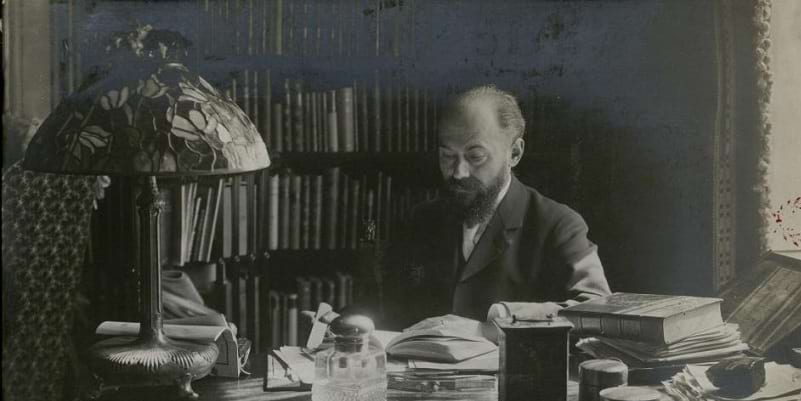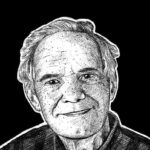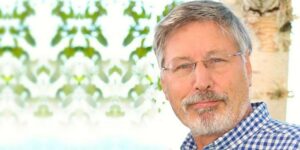Pierre Janet biografie en quotes

Pierre Janet (Pierre Marie Félix Janet: 30 mei 1859 – 24 februari 1947) was een bekende Franse psychiater, arts, filosoof en psychotherapeut. Pierre Janet was gespecialiseerd op het gebied van dissociatie en traumatisch geheugen. Hij werd vooral bekend dankzij zijn vermogen om bruggen te slaan tussen de academische psychologie en de klinische behandelingen van individuen. Ook droeg hij bij aan het begrip van concepten als depressie, hypnose, stoornissen zoals angst en ander abnormaal gedrag. Samen met bekende psychotherapeuten als Wilhelm Wundt en William James wordt hij genoemd als een van de grondleggers van de hedendaagse psychiatrie.
De biografie van Pierre Janet
Pierre Janet werd geboren in Parijs, Frankrijk. Zijn vader heette Jules Janet, een Parijse advocaat. Moeder Fanny Hummel was een vrome katholieke huismoeder. In zijn autobiografie vertelt Janet hoe zijn jeugd vooral gekenmerkt werd door interesses in natuurwetenschappen en mystieke zaken. Hij hoopte tegenstrijdigheden hierin op te lossen door filosofie te gaan studeren.
Academische achtergrond
Zijn keuze werd sterk beïnvloed door zijn oom Paul Janet, ook een bekende filosoof uit die tijd en werkzaam voor een spiritualistische academische instelling. In die tijd was het Eclectisch spiritualisme de overheersende vorm van filosofie in Frankrijk.
Deze vorm van filosofie vond zijn oorsprong in Maine de Biran, onder leiding van Victor Cousin. Dankzij deze man leerden de meeste studenten filosofie in Frankrijk een typische vorm van filosofie met spiritualistische inslag.
Pierre Janet beschreef zichzelf later als een spirituele filosoof die onderscheid maakte tussen twee onherleidbare werkelijkheden, de materiële en de spirituele werkelijkheid. Ook verklaarde hij zichzelf liberaal en open voor wetenschap.
Janet studeerde aan het Psychologisch Laboratorium in het Pitié-Salpetriere Ziekenhuis in Parijs. In 1889 publiceerde hij voor het eerst zijn resultaten van een onderzoek. Dit deed hij ook in zijn medisch proefschrift, in 1892. In 1893 behaalde hij zijn graad in de geneeskunde.
In 1898 werd Pierre Janet benoemd tot docent psychologie aan de Sorbonne. In 1902 werd Janet hoogleraar experimentele psychologie aan het Collége de France tot 1936. Vanaf 1913 was hij lid van het bestuur van het Institut de France. Hij bleek een centraal en belangrijk figuur in de Franse psychologie.
Sigmund Freud
Er is veel onenigheid geweest over wiens ideeën eerst kwamen, die van Sigmund Freud of Pierre Janet. Dat gebeurde onder meer op het congres van 1913, in London. Voor dat evenement schreef Sigmund Freud over ‘de theorie van hysterische verschijnselen’, die voor het eerst naar buiten zou zijn gebracht door Pierre Janet, en later uitgewerkt door Freud zelf, samen met Breuer.
Sigmund Freud verklaarde dat ze zijn voorbeeld volgden toen ze de splitsing van de geest en dissociatie van de persoonlijkheid als het middelpunt van hun positie innamen.
Ook schreef Sigmund Freud in 1911 over de terugtrekking van de neuroticus uit de realiteit. Hij stelde hierover: ook dit feit kon evenmin ontsnappen aan de observatie van Pierre Janet. Ook gebruikte hij termen van Janet, zoals de uitdrukking psychologische armoede.
In een rapport van Janet uit 1913 stelt hij dat veel van de nieuwe termen in de psychoanalyse voortkomen uit oude concepten die hernoemd waren, zoals zijn begrip van psychologische analyse en de psychoanalyse van Sigmund Freud. Dit leidde tot veel boze reacties van de aanhangers van Sigmund Freud. Hierdoor bekoelde de relatie tussen Sigmund Freud en Janet.
Sigmund Freud stelde dat hij lange tijd bereid was om Janet veel krediet te geven voor zijn visie op neurotische symptomen. Echter, na enige tijd zei hij: ik denk dat Janet onnodig veel krediet verspeeld heeft.
Vooral de beschuldiging van Janet dat Sigmund Freud zich schuldig maakte aan plagiaat stak Sigmund Freud. In een autobiografische schets ontkende hij dit stellig. In 1937 toen de twee in de gelegenheid kwamen, weigerde Sigmund Freud Janet te ontmoeten vanwege het feit dat er smaad en laster was gepleegd.
Bekende quotes
- “A little selfishness is necessary for life, since it is the starting point of consciousness.”
- “Conversation is a word game, but it is a game that sometimes has cruel undertones.”
- “Depressed people want to be taken care of, want to interest others; if they don’t feel interesting, important, they consider that they have ceased to exist, to be visible. And what they think of them, they immediately turn into reality: they are invisible.”
- “Emptiness removes the feeling of suffering, but retains the act of pain.”
- “It is very dangerous to pursue too long an effort in the same direction.”
- “It’s very beautiful intuition, it’s very convenient to explain a phenomenon we don’t know what it is.”
- “Martial (the main character of LOCUS SOLUS) has a very interesting conception of literary beauty: the work must contain nothing real, no observations about the world or the mind, nothing but completely imaginary constructions. These are in themselves ideas from an extrahuman world.”
- “Neuroses are not practical people, they take refuge in the world of dreams, and easily recognize each other, neuroses thus attract each other.”
- “Our mind is made up of a number of mechanisms that all want to work more or less. I say more or less. The trends are more or less good. Some function in deficit, these are bad tendencies that lead to a decrease in strength and vitality.”
- “Psychological operations are not done anyhow. They are subject to many influences. That of society plays a key role here.”
- “Social feelings are infinitely varied and changeable. Moreover, they change quickly or slowly according to whether the individual is unstable or stable. The weak have no lasting loves or hatreds, for strength is necessary for the stability of emotions.”
- “Social life is, more than any other, capable of exhausting people.”
- “Speech is only the expression of orders and obedience.”
- “Talking is already boring, but finally we can manage to make ourselves understood.”
- “The affection for the self, the interest in oneself, disappears with the appearance of the feeling of emptiness.”
- “The arrest of anxiety is the immediate and obligatory use of forces in a boring form; the arrest of jouissance is the free use of forces in an easy and advantageous circumstance.”
- “The battle is not always necessary, but one exposes oneself to it. To decrease the chances of battle, you have to make others believe that you are very strong.”
- “The battle is not always necessary, but one exposes oneself to it. To decrease the chances of battle, you have to make others believe that you are very strong. But to inspire the feeling of strength, one must already have won many battles.
- “The essential social actions are order and command. The timid do not know how to command, and cannot command.”
- “The feeling itself is not eternal, because nothing is eternal: everything evolves and everything changes.”
- “The feeling of emptiness, which corresponds to the complete absence of any feeling. It’s a surprising feeling, common among the exhausted and the neurasthenics. We could define it as the feeling of the loss of feelings, the feeling that there is no feeling.”
- “The feelings of effort, corresponding to acceleration, the feeling of fatigue corresponding to braking, the feeling of suffering or anguish which corresponds to recoil, finally the feeling of enjoyment which corresponds to stopping with discharge.”
- “The finality is only a belated behavior of men, a way of linking language to the movements of our limbs.”
- “The individuals around us are classified according to the verbal fatigue they impose on us.”
- “There are many individuals who, deep down, have nothing to do, who are neither rich nor poor, neither generals, nor soldiers, neither good nor bad, and who are very happy if they are made to play a role.”
- “There is no madness which, in man, cannot be transformed into reality.”
- “There is nothing in the world so tiring, so exhausting as social actions.”
- “Traumas produce their disintegrating effects in proportion to their intensity, duration and repetition.”
- “When we make a great effort to avoid something, we inevitably tend towards the opposite of what we want to avoid.”
- “You always have to be strong in life, even to be happy.”
Bekende publicaties en boeken van Pierre Janet et al.
- 1930. Autobiography of Pierre Janet. History of Psychology in Autobiography. Worcester, MA: Clark University Press. Vol. 1, pp. 123–133.
- 1928. L’evolution de la memoire et de la notion du temps. Paris: A Chahine.
- 1910. Une félida artificielle. Revue philosophique 69: 329–357; 483–529.
- 1909. Les nervoses. Paris: Flammarion.
- 1909. Du rôle de l’émotion dans la genèse des accidents névropathiques et psychopathiques. Revue Neurologique 17(2): 1551–1687.
- 1907. The major symptoms of hysteria, 2nd ed. ISBN 0028471709
- 1904. L’amnesie et la dissociation des souvenirs par l’emotion. Journale de Psychologie 1: 417–473.
- 1903. Les obsessions et la psychasthénie (2 vols.). New York: Ayer. ISBN 0405074344.
- 1898. Nevroses et idees fixes. Masson. ISBN 2225822840.
- 1897. L’influence somnambulique et le besoin de direction. Revue Philosophique 43(1): 113–143.
- 1894. Histoire d’une idée fixe. Revue Philosophique 37(1): 121–163.
- 1893. L’amnesie continue. Revue Generale des Sciences 4: 167–179.
- 1891. Etude sur un cas d’aboulie et d’idees fixes. Revue Philosophique 331(1): 258–287.
- 1886. Les actes inconscients et le dedoublement de la personnalite pendant le somnambulisme provoque. Revue Philosophique 22(2): 577–792.
Citatie voor dit artikel:
Janse, B. (2022). Pierre Janet. Retrieved [insert date] from Toolshero: https://www.toolshero.nl/bekende-auteurs/pierre-janet/
Oorspronkelijke publicatiedatum: 03/11/2022 | Laatste update: 24/05/2023
Wilt u linken naar dit artikel, dat kan!
<a href=”https://www.toolshero.nl/bekende-auteurs/pierre-janet/”> Toolshero: Pierre Janet</a>












